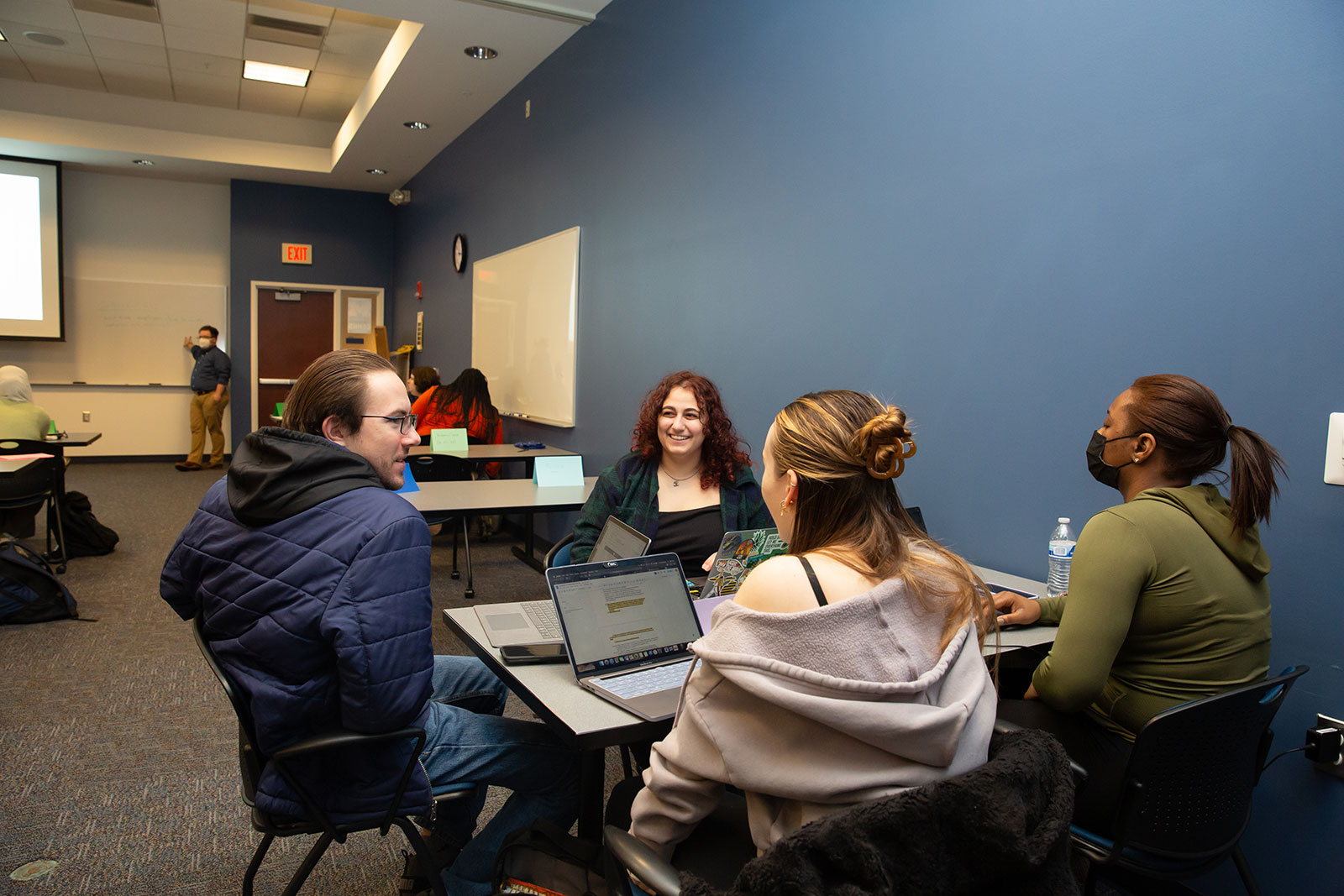Related Resources
Couple Community and Compassion in Your Career
 If you want to make a meaningful impact on the health and lives of people in your community a Bachelor of Science degree in health and human services from UM-Dearborn will open a huge range of meaningful job opportunities for you. You'll select one of three tracks of specialization - public health, pre-health professions, or human services.
If you want to make a meaningful impact on the health and lives of people in your community a Bachelor of Science degree in health and human services from UM-Dearborn will open a huge range of meaningful job opportunities for you. You'll select one of three tracks of specialization - public health, pre-health professions, or human services.
The program’s flexibility lets you tailor your studies to perfectly match your career goals and personal interests. With the human services track there’s even an option to complete your bachelor’s and master’s degrees in just five years, saving you time and thousands of dollars in tuition.
Where a Health and Human Services Degree Will Take You
Your degree will prepare you to work in public health, social work, child life, addiction and recovery, child and family services, health policy and administration, and related areas. It also can serve as a solid base for further training to become a doctor, physician assistant, pharmacist, physical therapist, occupational therapist, dentist, optometrist, or nurse.
